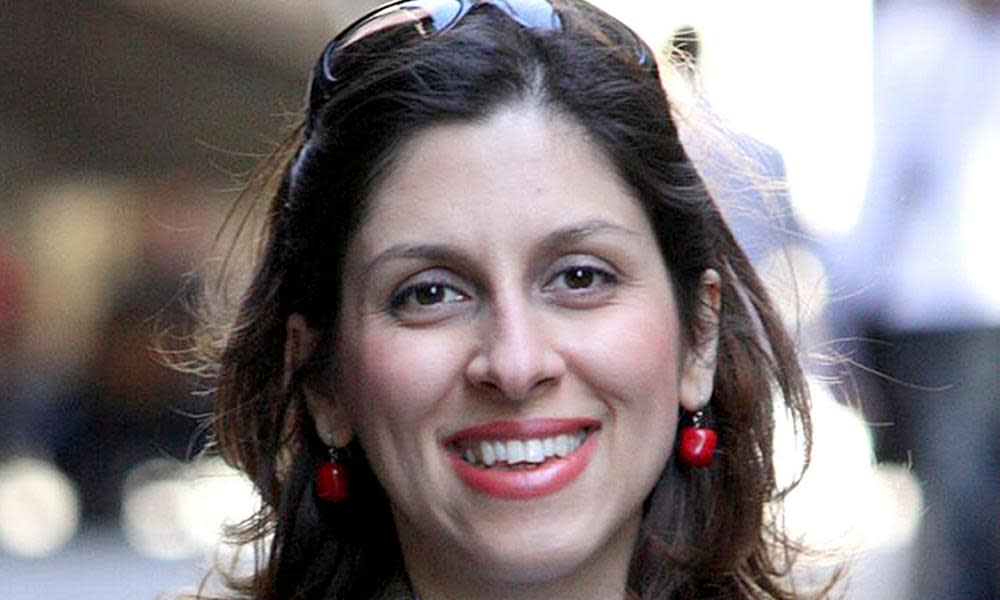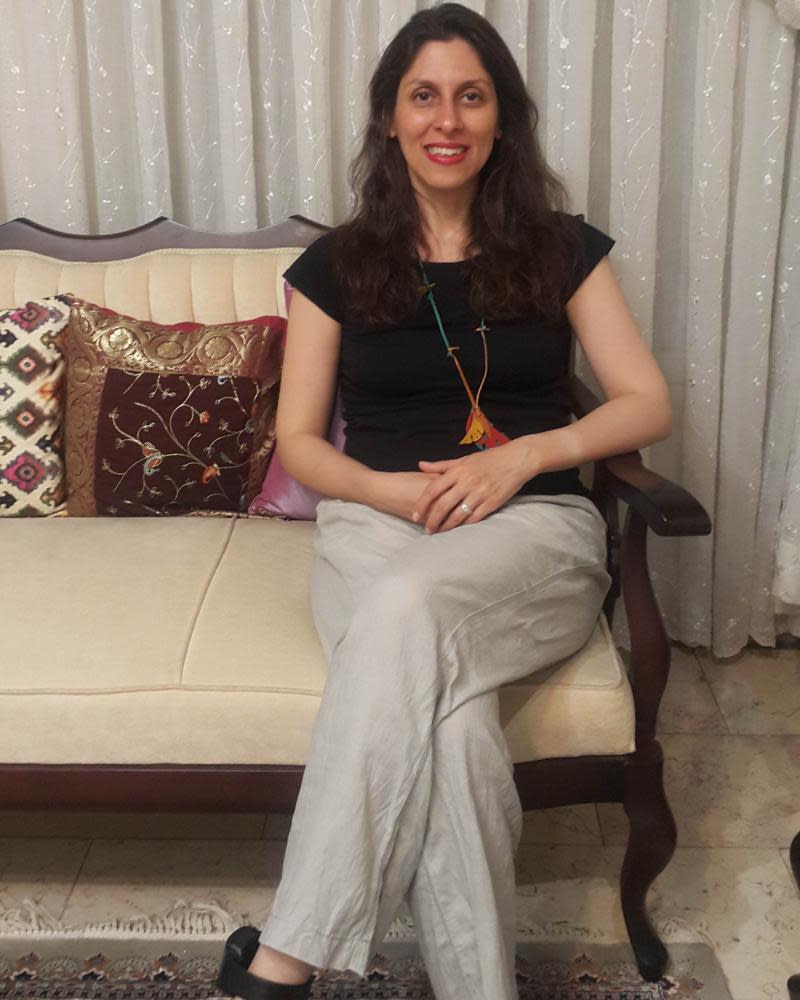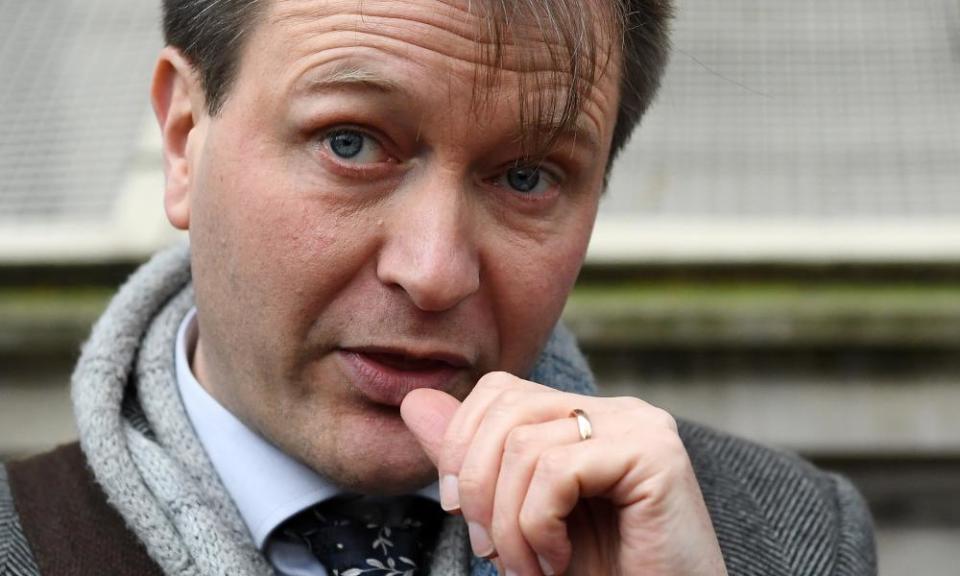Nazanin Zaghari-Ratcliffe under consideration for clemency

Nazanin Zaghari-Ratcliffe, the British-Iranian dual national on temporary release from a five-year jail sentence, is for the first time under formal consideration for clemency, her family has been told. A decision will be made by the highest level of Iran’s multi-layered government. There is no guarantee that clemency will be granted, or that she will be allowed to return to the UK.
Zaghari-Ratcliffe, seen by some as a bargaining chip in the wider diplomatic dispute between the UK and Iran, was given a temporary fortnight’s release from Ervin jail, Tehran, on 17 March along with 85,000 other prisoners at risk from the coronavirus outbreak. She has been allowed to stay at her parent’s house in Tehran, but made to wear an ankle brace that keeps her within 300 metres of her parent’s home.
All prisoners sentenced for five years or less were given temporary release, permitting half of all Iran’s political prisoners to be freed.
The supreme leader, Ayatollah Ali Khamenei, announced early last week that what had initially been seen as a fortnight’s release for furloughed prisoners had been extended to early April since there was no sign that the coronavirus pandemic was easing. Zaghari-Ratcliffe’s inclusion in that extension was only confirmed to the family by the prison on Saturday.
Arrested in April 2016, she was sentenced in September to five years in jail. Her sentence is due to come to an end within 10 months unless new charges are levelled against her - something the Islamic revolutionary guards corps has threatened in the past.

The potential offer of clemency, relayed to Nazanin’s father by the prison authorities at the weekend, will be recommended to the Iranian prosecutor general’s office. Her husband, Richard Ratcliffe, described the move as “potentially a baby step towards freedom”. “I spoke to her yesterday and her mood was pretty upbeat,” he said.
Ratcliffe told the Guardian: “The deputy prosecutor can either approve clemency or refer the file back to the supreme leader’s office with a recommendation that she not be granted clemency, or it could just sit on his desk for a bit.
“The supreme leader can refuse a recommendation not to grant clemency, or can follow it and specify that Nazanin not be granted. But the default in the process following the supreme leader’s proclamation last week is that the law requires eligible people to be granted clemency.
“So it is a good that her file has been put forward – an acknowledgement by the judiciary that she is formally eligible, and she is being treated so far like everyone else.”
He and his wife, 41, have suffered painful false dawns before, partly because the Iranian political system has many different centres of decision-making.
British officials believe any decision to grant her clemency will be taken at the highest level, including an assessment of the wider political benefits to Iran in winning support for the lifting of sanctions. Zaghari-Ratcliffe has deliberately made no political statement since her release from jail, but the pressure to release other prisoners is intense, with reports of unrest in prisons continuing this weekend.

The Iranian foreign ministry has been mounting an increasingly effective international campaign, including with American Democrats, to turn up the diplomatic heat on the US for its refusal to suspend economic sanctions to help Iran purchase medical equipment needed to help fight the pandemic. Britain has been privately urging Mike Pompeo, the US secretary of state, to see if the US can remove any blocks to a new Swiss channel, the Swiss humanitarian trade arrangement, that is supposed to ease the flow of humanitarian supplies to Iran.
International bankers say they still do not have sufficient reassurance from the US Treasury that they will not be sanctioned if they finance the trade. At the same time, Iran has been seeking help in securing a $5bn (£4bn) IMF loan, something the US could block. A reformist MP from Tehran, Alireza Rahimi, tweeted on Sunday that the IMF was going to release “a substantial portion” of the loan.
The Iranian foreign minister, Javad Zarif, said: “The US government had moved from sabotage to assassinations to waging an economic war and economic terrorism on Iranians and now to medical terrorism. This even exceeds what is permissible on the battlefield.”
However, hardliners are determined to send out a message that the government can ride out the crisis alone, and seem mainly eager to take aim at the failure of Europe and the US to bring the pandemic under control.
Pressure has also been mounting on the sometimes incoherent Iranian leadership over its handling of the pandemic. The Iranian health ministry on Sunday announced a further 2,901 new coronavirus cases in the previous 24 hours, taking the total number of cases to 38,309. The 24-hour total of new infections has ballooned in the past five days from below 900 new infections in a week.
The official total death toll is only 2,640, and the daily recorded deaths are broadly static, something that is hard to reconcile with the higher level of infections. The death toll is a quarter of Spain’s, and may be due to Iran’s decision to classify some deaths as caused by respiratory difficulties rather than coronavirus.
Following weeks of pressure to take tougher steps, Iran’s president, Hassan Rouhani, finally introduced physical distancing and city quarantines. An emergency 2,000-bed hospital has been built in Tehran, reflecting the pressure in the capital. A total of 3,467 patients are described as “in severe condition”.

 Yahoo News
Yahoo News 
